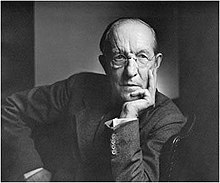Duncan Campbell Scott
| Duncan Campbell Scott | |
|---|---|

Dr. Duncan Campbell Scott - Portrait by Yousuf Karsh, 1933 (Source: Library and Archives Canada, PA-165842)
|
|
| Born |
August 2, 1862 Ottawa, Upper Canada |
| Died | December 19, 1947 (aged 85) Ottawa, Ontario |
| Occupation | Civil servant |
| Language | English |
| Nationality | Canadian |
| Citizenship | British subject |
| Genre | poetry |
| Literary movement | Confederation Poets |
| Notable awards | CMG, Lorne Pierce Medal, FRSC |
| Spouse | Belle Botsford, Elise Aylan |
Duncan Campbell Scott (August 2, 1862 – December 19, 1947) was a Canadian bureaucrat, poet and prose writer. With Charles G.D. Roberts, Bliss Carman, and Archibald Lampman, he is classed as one of Canada's Confederation Poets.
Scott was a Canadian lifetime civil servant who served as deputy superintendent of the Department of Indian Affairs from 1913 to 1932, and is better known today for advocating the assimilation of Canada’s First Nations peoples in that capacity.
Scott was born in Ottawa, Ontario, the son of Rev. William Scott and Janet MacCallum. He was educated at Stanstead Wesleyan College. Early in life, he became an accomplished pianist.
Scott wanted to be a doctor, but family finances were precarious, so in 1879 he joined the federal civil service. As the story goes,
William Scott might not have money [but] he had connections in high places. Among his acquaintances was the prime minister, Sir John A. Macdonald, who agreed to meet with Duncan. As chance would have it, when Duncan arrived for his interview, the prime minister had a memo on his desk from the Indian Branch of the Department of the Interior asking for a temporary copying clerk. Making a quick decision while the serious young applicant waited in front of him, Macdonald wrote across the request: 'Approved. Employ Mr. Scott at $1.50.'
Scott "spent his entire career in the same branch of government, working his way up to the position of deputy superintendent of Indian Affairs in 1913, the highest non-elected position possible in his department. He remained in this post until his retirement in 1932."
Scott's father also subsequently found work in Indian Affairs, and the entire family moved into a newly built house on 108 Lisgar St., where Duncan Campbell Scott would live for the rest of his life.
...
Wikipedia
